As Charlotte Hedemark prepares to step down as FERMA President, she urges risk managers to adopt a more strategic, forward-looking role.
Charlotte Hedemark will step down as President of FERMA this October after a two-year term, to be succeeded by Airbus executive Philippe Cotelle. But before she goes, she has a message for the profession: risk managers must seize the opportunity to lead through complexity.
Speaking at the Federation’s General Assembly in Brussels, Hedemark challenged risk professionals to reimagine their role, not only as guardians against risk but as enablers of long-term value.
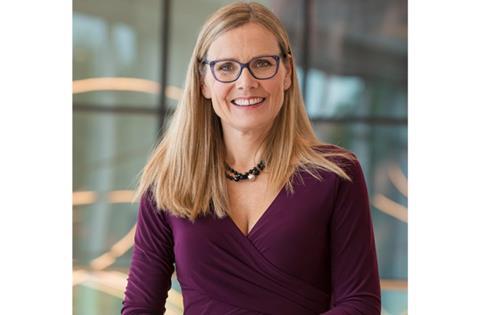
“At a time of constant change and rising complexity, foresight is a vital complement to traditional risk management to navigate uncertainty and emerging threats,” she told attendees.
She called on risk managers to move beyond reactive controls and compliance, urging them instead to shape strategic decisions and drive resilient transformation.
“Risk managers must take the lead in cultivating a forward-looking culture, expanding risk horizons, and challenging cognitive biases that limit ambition and restrict opportunity,” she said.
Shaping the future of the profession
FERMA’s recent work under Hedemark’s leadership has focused on repositioning the corporate risk function as a strategic engine for growth and resilience. At the centre of this is the New Exposure Trends (NeXT) report, which identifies four potentially systemic global risks—geopolitical shifts, technological acceleration, climate change and human capital—and calls for more dynamic ways of managing them.
These themes were reinforced by findings from the Risk Manager Survey 2024, which, for the first time, extended beyond Europe to capture insights from over 1,000 risk professionals in 77 countries. Together, the two publications highlight how the profession is adapting to a more volatile, interconnected and fast-moving global environment.
FERMA’s ERM Committee is now working to turn this insight into action, developing a new position paper: Shaping the Future: The Crucial Role of the Corporate Risk Manager to help elevate the risk function’s role in strategic decision-making. The paper outlines the need for integrated frameworks that connect risk across time horizons, along with greater use of techniques such as horizon scanning and scenario planning.
“At FERMA, one of our priorities is to inspire and equip risk managers to become future-focused enablers within their organisations – champions of opportunity in an ever-changing risk landscape,” said Hedemark.
FERMA’s agenda also includes an expanded programme of guidance and technical papers due later this year. These will cover lessons from the first year of CSRD implementation, recommendations for closing the cyber insurance protection gap, and new guidelines to support the use of captive insurance in ESG strategy.
Much of this work is being led by FERMA’s specialist committees on sustainability, digitalisation and captives. Collectively, they reflect the Federation’s goal of equipping members with the tools needed to influence business priorities well beyond the traditional boundaries of risk and insurance.
A leadership transition at a pivotal moment
Hedemark, who described her time in office as “a very fulfilling and rewarding two years,” will formally hand over the presidency on 24 October at the FERMA Seminar in Zurich.
“Although I am stepping down as President in October, I will remain actively involved in the work of this dynamic federation and continue to support our profession in our aim to connect, influence and empower,” she said.
She will be succeeded by Philippe Cotelle, who currently serves as head of cyber insurance management and head of insurance risk management at Airbus Defence & Space, and has been a FERMA board member for eight years.
Cotelle brings more than two decades of experience to the role, including previous senior risk positions at SCOR and EADS Astrium, and is also a board member of AMRAE.
Speaking after his appointment, he said: “I am deeply honoured to be elected president of FERMA. Our mission, to embed risk management into the core of every organisation’s business model and culture, remains central to all we do.”
The General Assembly also confirmed the election of four new FERMA board members:
- Dr. Ulrich Adamheit, head of group tisk management, Electrolux Group
- Tadas Cilcius, senior risk manager, Kashimi
- Christian Jens Fuchsenthaler, head of corporate insurance, Daimler Truck AG
- Luis Lancha Vázquez, head of risk & insurance, SENER Group
- Annemarie Schouw, manager risk & insurance at Tata Steel Europe, was also re-elected to the board.
“FERMA is proud of the exceptional talent and wide-ranging expertise represented by our Board members,” said Hedemark.
“Together, this collective strength positions us ideally to serve as a unifying voice for our member associations, elevating the profile of the profession, and advocating for the interests of the European risk management community.”





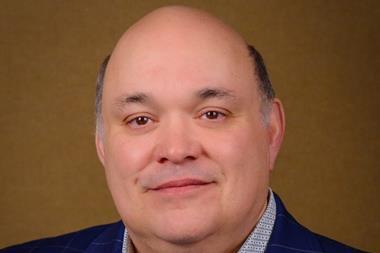
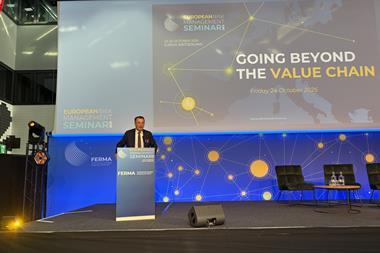

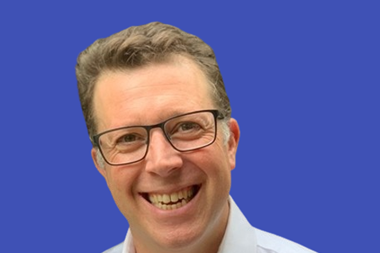
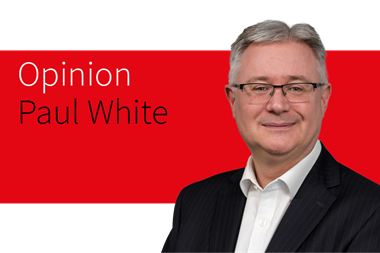




No comments yet